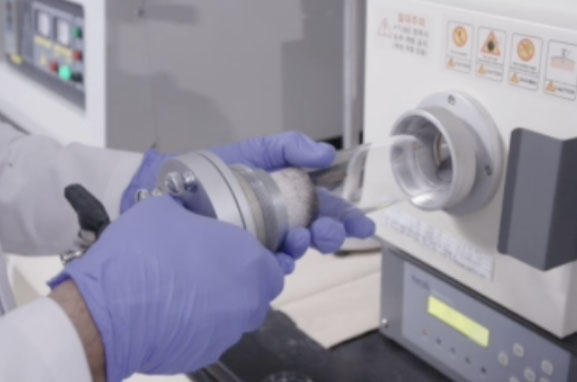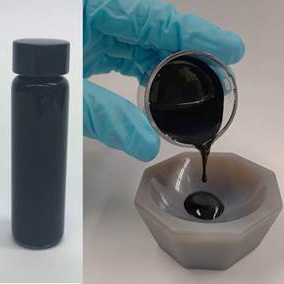 Drexel is helping to start the first trade association to support the research and development of MXenes.
Drexel is helping to start the first trade association to support the research and development of MXenes.
A decade after Drexel University researchers made the pathbreaking discovery of a family of versatile, two-dimensional materials, which they dubbed MXenes, the University is helping to establish a global trade association for researchers, manufacturers and companies that are working with the materials. Called the MXene Association, it will serve as the professional body to establish standards and best practices, connect researchers and corporations and promote the research and development involving the materials.
Headed by Terrance Barkan, executive director of the Graphene Council, the MXene Association will be charged with supporting research, development and application of MXene materials through the dissemination of information, education and networking.
“We are excited to help launch the MXene Association and look forward to the positive impact that the association will have on transitioning academic discoveries to the commercial sector,” said Aleister Saunders, PhD, executive vice provost for Research & Innovation at Drexel.
Drexel is a charter founding member of the Association and will be represented by Yury Gogotsi, PhD, Distinguished University and Bach professor in the Department of Materials Science and Engineering, who will serve as the Association’s chief scientific advisor.
“I look forward to working with all interested parties in industry and academia worldwide to facilitate industrial production of MXenes and commercialization of MXene-enabled devices and technologies that will have strong societal impact,” he said.
 MXene materials have been developed in ink form for spray applications, such as telecommunications and electromagnetic interference shielding.
MXene materials have been developed in ink form for spray applications, such as telecommunications and electromagnetic interference shielding.
Gogotsi and Michel Barsoum, PhD, Distinguished professor in the Department of Materials Science and Engineering, discovered the family of materials in 2011 and have led international research efforts to explore the properties and applications of MXenes and their precursor, MAX phase materials, over the last decade. Their work has uncovered more than two dozen discrete MXenes and revealed characteristics of the materials that could see them used in a variety of applications, including energy storage, electromagnetic shielding, telecommunications and biomedical technology.
Thousands of scientists around the world are now involved with MXene research and two international companies have already licensed MXene technology for telecommunication and biomedical applications. In 2020, Drexel hosted the first MXene Conference in the United States, where more than 2,000 international researchers gathered virtually to discuss new developments and the future of the promising material.
“MXenes and other 2D advanced materials are positioned to help solve some of our most pressing engineering and materials challenges,” Barkan said. “The MXene Association is an independent, neutral platform to help connect key stakeholders in this emerging field. We especially value the relationship with Drexel University, the ‘home’ of MXenes, as our scientific and technical advisors.”
For more information about the MXene Association, visit: www.MXenes.org